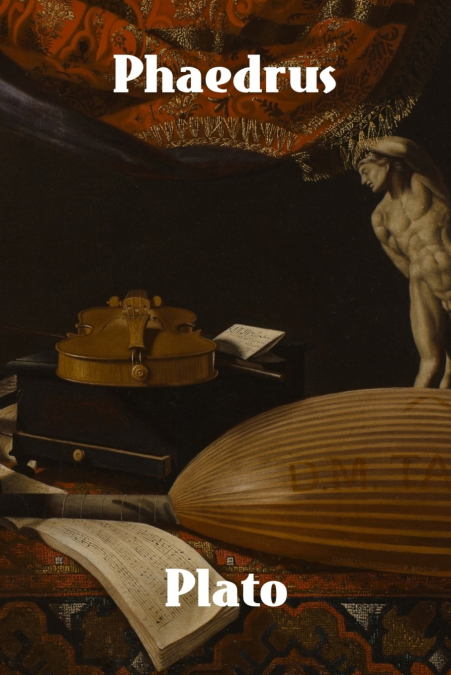
Plato
The Phaedrus, written by Plato, is a socratic dialogue between Socrates, and Phaedrus, an interlocutor in several dialogues. The Phaedrus was presumably composed around 370 BCE, about the same time as Plato’s Republic and Symposium. Although ostensibly about the topic of love, the discussion in the dialogue revolves around the art of rhetoric and how it should be practiced, and dwells on subjects as diverse as metempsychosis (the Greek tradition of reincarnation) and erotic love, and the nature of the human soul shown in the famous Chariot Allegory.Socrates runs into Phaedrus on the outskirts of Athens. Phaedrus has just come from the home of Epicrates of Athens, where Lysias, son of Cephalus, has given a speech on love. Socrates, stating that he is 'sick with passion for hearing speeches', walks into the countryside with Phaedrus. Socrates is hoping that Phaedrus will repeat the speech. They sit by a stream under a plane tree and a chaste tree, and the rest of the dialogue consists of oration and discussion.The dialogue does not set itself as a re-telling of the day’s events. It is given in the direct words of Socrates and Phaedrus, without other interlocutors to introduce the story. This is in contrast to dialogues such as the Symposium, in which Plato sets up multiple layers between the day’s events and our hearing of it, explicitly giving us an incomplete, fifth-hand account